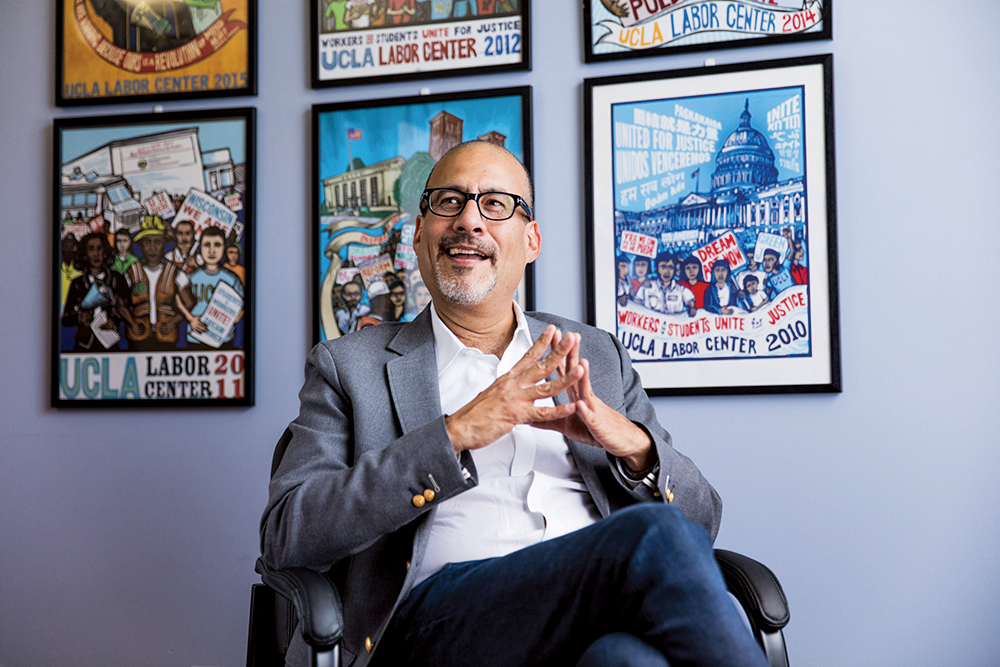“Los Angeles is the harbinger for the future. It’s a city that has driven the national debate on workforce issues such as the minimum wage, wage theft, youth employment and immigration. These key issues are shaping the conversation about the future of work nationwide.”
So says Abel Valenzuela, director of the UCLA Institute for Research on Labor and Employment. Valenzuela is an expert on day laborers, immigration and labor markets, urban poverty and inequality, and immigrant settlement patterns. His work focuses on understanding the social position and impact of immigrants in the United States, especially in Los Angeles.
Valenzuela, who serves as special advisor to the chancellor on immigration policy and is a professor in the César E. Chávez Department of Chicana/o and Central American Studies in the UCLA College, has studied how different groups of workers compete for low-wage, low-skill jobs; the local economic and employment impacts of immigration; and job search and commuting behavior among racial and ethnic groups in Los Angeles.
Since its founding in 1945, the Institute has played an important role in the intellectual life of the university and in the national conversation on labor and employment issues. It forms wide-ranging research agendas on issues impacting workers on the margins including immigrant workers, Black workers, gig workers, young workers and domestic workers. The Institute’s studies have advanced policy changes related to the minimum wage, wage theft, and paid sick leave. Last fall, the Institute launched the labor studies major, the first of its kind at the University of California.
As local and national economies grapple with the unprecedented impacts of COVID-19, the Institute’s research will be critical to rebuilding a more racially equitable economy that prioritizes the most vulnerable workers.
Says Valenzuela, “UCLA is in the business of discovery and science and using that science to make change. My colleagues who study the impacts and intervention related to cancer are serious about finding a cure for cancer. In that same spirit, at the Institute we use social science to ensure workers live dignified lives and are able to support their families.”

